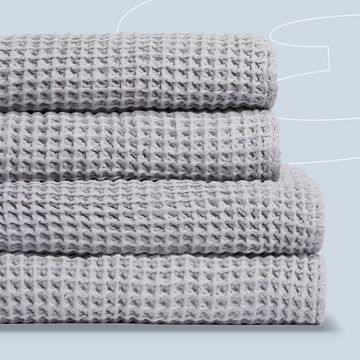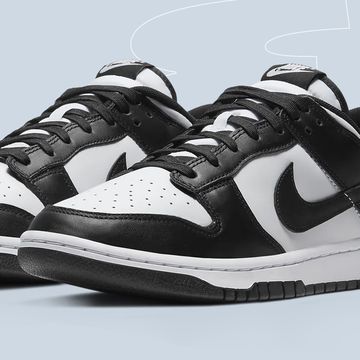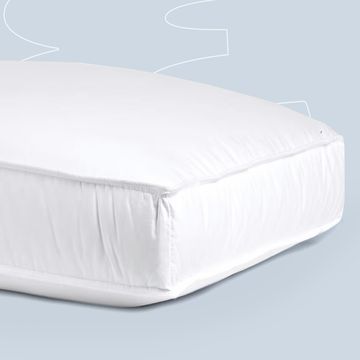"All of them told us their stories, and behind each of these stories looms the shadow of that formidable father, a stern, arrogant, and violent man, whose voice alone made Adolf cringe, and who would thrash his son unmercifully for any little reason."
—John Gunther on Alois Hitler, Vanity Fair, September 1934
There has been no greater villain in the story of mankind than the bad father. The one who hits or humiliates. The one who doesn't show up. The one who leaves. The one who won't (please, God) leave. The drunk or the liar or the condescending prick. Bad fathers have ruined more lives than famine and war put together, bruising and battering their sons and daughters emotionally, mentally, and/or physically and dooming them to repeat the cycle, generation after generation until kingdom come.
Men know this. We had friends growing up who had bad fathers, assholes on the sidelines or dinner-table tyrants, or perhaps we had or have one ourselves, the man whose voice alone makes us cringe. We understand the damage that a bad father can do, and we understand what things can and cannot be undone. And when the time comes, as it does for most of us, to have a child of our own, we feel the first measure of that responsibility, that weight, and we say, with confidence: Not us. We will do better. We will hug our kids and hold their hands. We will support and nurture. We will keep our voices down, and our hand, too. We'll go to the games or recitals we can and we'll feel guilty when we can't. We'll be there for bedtime and teacher conferences, and we'll be home on the weekends. We'll do everything we can to be everything they need, because that's what it means to be a good father today, isn't it?
Isn't it?
"I think that adults now pay too much attention to their children at the expense of themselves. Parents close off interests or avenues that they formerly pursued that made them fuller and more interesting people. And they're totally focused on their little ones, signing them up for every activity under the sun. They're just all over them. It's a little bit overdone, and it's a little obnoxious."
—An 81-one-year-old father and grandfather, February 2014
It's worth pointing out that nobody really needs to become a father at all anymore.
Yes, it's helpful when you're a politician to have a little one up on the bandstand with you (otherwise, well, the rumors...), and if you're religiously inclined and spurn contraception, then, okay, kids might be unavoidable, but for the rest of us, it has never been practically easier or more socially acceptable to simply opt out of having a child altogether, and a growing number of us are instead choosing childless cohabitation or perpetual singledom or whatever Clooney has going on these days. More than any other time in modern or ancient history, we've got options.
Of those who are choosing to be fathers, though, and choosing to be what they consider to be good fathers—well, these guys are in it. We're spending three times as many hours every week with our kids as men did in the '60s. (Two economists, Valerie and Garey Ramey, noted that among both mothers and fathers, "if the hours were valued at their market wage rate, the increase in childcare time would amount to over $300 billion per year.") We're twice as likely as our spouses to say we aren't spending enough time with our kids,and, like our spouses, we're nearly twice as likely to find "significant meaning" in child care than in our paid work.We're the targets of big-balled advertisers from Chevy, Hyundai and VW to Google, Tide, Sears, and Dove; and even Major League Baseball islooking to profit from paternal insecurity and/or pride. We're having fun with the musings of fellow dads—buying Adam Mansbach's Go The Fuck to Sleep by the truckload; trying to pass Louis C.K.'s bad-dad riffs off as our own; "liking" the hell out of the recurring "Dadspin" feature on Deadspin.com (with one December post, about one kid's "insane Christmas wish list," clocking 3.3 million hits and huge viral play.)You've got America's quarterback kissing and hugging his boys at the playground.You've got Snoop Dog coaching kid's football. You've got the heir to the English throne, that Everest of emotional unavailability, saying he changes diapers. (He gets that from his mother.)
And you've got Tom Cruise. Last year he sued a tabloid, not for the usual reason he sues tabloids but because said tabloid had indicated Cruise had "abandoned" his daughter because he didn't see her for a few months while he was busy shooting a movie overseas.(Not unlike—though, really, not at all like—how military personal and oilrig workers and untold many more are required to spend months away from their little ones. Cruise ended up dropping his suit.) Meanwhile, when Mets second baseman Daniel Murphy took a few days off after his son was born, Mike Francesa called paternity leave "a scam and a half" on air and his listeners lit into him for being out of touch, old-fashioned, old. That this wasn't the NPR crowd parsing modes of patriarchy but a bunch of guys who argue about designated hitters might be the ultimate proof: more men are more active, and more interested, in being fathers today than at any time in anyone's lifetime.
And this is all to the good—for the kids. Unless you're a drunk or a bully, or merely one of the so-called helicopter parents who sow seeds of dependency and narcissism in your little centers of the universe, there is no evidence that being present in your kids' lives is anything but a boon for them. But for you? Your stress levels will go through the roof, as will your odds of experiencing depression. Your physical health and social life will suffer. Your marriage could easily turn into one of those roommate situations you swore it would never become. And you might find yourself, late at night or in the shower or chauffeuring your kid to yet another lesson or practice, thinking that this wasn't what you signed up for. That you love your children, and that you really would sacrifice anything for them, but that being the kind of father you want to be—a good father—involves too many sacrifices, too much compromise, too high a price.
Does thinking such thoughts make you a bad father?
Does it?
"I made $970,000 last year. How much'd you make? You see pal, that's who I am, and you're nothing. Nice guy? I don't give a shit. Good father? Fuck you! Go home and play with your kids. You wanna work here—close! You think this is abuse? You think this is abuse, you cocksucker?"
—Blake (who might as well actually be Alec Baldwin), Glengarry Glen Ross, 1984
It's called "the fatherhood premium," and for generations, it was understood that having a child (or starting a family) would not only increase a man's salary but his productivity and his loyalty to the company. That premium, in some form, still exists: among other researchers, Rebecca Glauber of the University of New Hampshire found that for "married whites and Latinos, the birth of a child is [still] associated with an increase in... annual earnings and annual time spent at work." (The former is a premium for you; the latter, for your employer. Everybody wins. Kind of.) Other probable upsides to becoming a dad: you're more likely to enjoy long-term job stability and you're also more likely to find whatever work you're doing fulfilling. Brad Harrington, the director of Boston College's Center for Work and Family, has interviewed thousands of men over the course of his research, and "the majority of people who are [equally focused on work and family] tend to say that they find more fulfillment in their work than people who were work-centric. The fact that they're spending more time with their kids actually makes their job more enjoyable." These benefits are not nothing.
However, Harrington says, "If you're looking to find conclusive evidence that says that men who spend more time with their family are going to advance higher in the workplace, that's not going to happen. If you really are family-centric, you're probably not going to get to the top in corporate America." This sounds like a specious claim out of an Ayn Rand nightmare—and Rand did once claim that for "young people who are ambitious and struggling...parenthood would force [them] to give up their future and condemn themselves to a life of hopeless drudgery, of slavery to a child's physical and financial needs"—but there's growing evidence to support the claim. Jennifer L. Berdahl of University of Toronto's Rotman School of Management recently conducted a survey of middle-class Canadians and showed a direct correlation between parental involvement and workplace harassment (in the form of taunting, dissing, and all-purpose shit-giving)."The men who are changing diapers, cooking dinner, taking kids to the dentist, helping with the homework: they reported significantly more mistreatment than other men at work," she says, particularly in comparison to those men who played more traditional, hands-off dad roles.
Meanwhile, here in America, the workplace isn't much kinder. According to a 2013 series of studies out the Center for Work-Life Law at the University of California Hastings, men seeking greater work-life flexibility from their employers are more likely to receive lower performance evaluations and face greater risks of marginalization. Scott Behson, a professor of management at Fairleigh Dickinson University who's been tracking men's attitudes toward work and fatherhood for more than a decade, wasn't surprised by the findings. "The number-one predictor to making it to the top of organizations is willingness to put in the time, and to really advance, you really need to have a spouse that can pick up the slack. In fact, most CEOs are men and have spouses who do not work." Which is nice if you're part of the 20 percent of married couples in America with such an arrangement. For the 47 percent of couples with something approximating a fifty-fifty partnership, the odds of going as high as you could possibly want to go are more daunting.
(This might be more troubling if it appeared that involved fathers actually cared as much as they used to. A recent study from the Families and Work Institute charted the evolution of work-life attitudes among young American (29 and younger) from 1992 to 2008, and 80 percent of the male '92 respondents wanted jobs with more responsibility compared to just 68 percent of the '08. Meanwhile, the number of working dads who'd prefer to stay home, and who actually do stay home with the kids rather than work in an office, is on the rise, with rates significantly higher among younger, more active fathers.)
"We have a lot of evidence to suggest that more active fathers are lower achieving," says Gayle Kaufman, author of Superdads and professor of sociology at Davidson College, and it's not because they're not working as hard. Men with kids work more hours every week than men without kids, beginning more or less right away. "Men tend to work more in the first year of their child's life than they do before, probably not by choice," says Behson. "And that first year is unbelievably hard in terms of stress, and spending more time at work is just another stressor."
According to the Family and Work Institute, there is a direct correlation among fathers between the number of hours spent on child care every day and the amount of work-life stress,and David Eggebeen, a sociologist with Penn State who's studied this issue for thirty years, sees that struggle manifesting itself in many ways: "Men's health declines when they become fathers. They become ill more often and they rate their health as lower. They reorganize their social lives; instead of recreational softball and hanging out with their friends, they're going to Cub Scout meetings and Parent Teacher meetings and getting involved with organizations that revolve around children. It reaches the point where you can't nurture a wide array in your social network." (Perhaps this explains why, in a recent survey of 10,253 men, conducted over the course of 20 years, younger fathers—aged 25 or so—were 68 percent more likely to suffer symptoms of depression during their first five years of being a dad than their childless peers. The prospect of den meetings can do that to a man.)
A great many men today have fewer close friends than they did a generation ago (according to one study, it's down from 3.5 "discussion partners" in 1985 to 2.0 today).They have less free time and fewer hobbies. (Ten fewer hours a week than in 1965, according to Valerie Ramey from the University of California, San Diego.) And while there is ample evidence to indicate that having children strengthens and prolongs marriages due to reasons both emotional (stronger, deeper bonds) and practical ("for the kids," etc.), there is also the fact that, well, something's gotta give. In reporting Superdads, Kaufman "found that the men who were more egalitarian, wanting to be more involved, were less likely to get divorced. But most of those fathers saw spending time with their children as their highest priority, and they're willing to trade off on time with their partners or time for themselves."
Catherine Lee, a psychologist at the University of Ottawa, sees great peril in such prioritization: "Parents think that they're being great parents by spending all the time with their kids, but it is the quality of time that counts for kids rather than quantity. It's about focusing on the child and tuning into his needs, and in turn, focusing on yourself and your marriage. Otherwise, you could end up as co-parents. Or roommates. Or co-signers of the lease. I see that happening with a very frightening frequency."
"The day you get married you realize, 'Shit! I can't leave now. I wasn't thinking of leaving but now I really can't leave.' And then you have a kid and the moment the kid arrives you realize, 'Shit! I could have left! I totally could have left! The door is right there and it wasn't even fucking locked!'"
—Me, thinking about life. (Louis C.K. said that exact same thing, too? Weird.)
In my house we have a running joke—my pack of cigarettes moments. Old story, many times told: Dad goes out for a pack of cigarettes (or a gallon of milk, or a walk), never comes back. And sometimes, amid tantrums and tears and exhausting negotiations (the kids', not ours), my wife will see me on the edge and cut the tension by asking: "Pack of cigarettes?" It's funny because we both know that I'm not going anywhere, but I recognize and understand the impulse that drive men out the door, and I suspect a lot of other fathers do, too.
Plenty of them, too many of them, act on that impulse and simply walk away, but for those who stick around, it's hard to figure out just how much time, energy, and effort is actually required to raise a healthy, happy child. (As Jennifer Senior, the author of the totally enjoyable All Joy and No Fun, put it in a TED Talk, "If we aren't trying everything, it's as if we're doing nothing.") I spoke with roughly a dozen experts and posed an identical scenario to each one. Say you have three fathers: one coaches his kid's Little League team; one shows up to the games and cheers the kid on from the sidelines; and the other drops his kid off at practice. Is there any data to suggest that a kid's long-term success is determined or even influenced by which type of father he has?
And the answer, from each of the experts, was the same: nope, none, zero. Compare this with the findings of Keith Robinson and Angel L. Harris, sociologists and authors of The Broken Compass: Parental Involvement with Children's Education, who studied hundreds of families over thirty years and determined that "most forms of parental involvement yielded no benefit to children's test scores or grades." What's more, "consistent homework help almost never improved test scores or grades. Even more surprising to us was that when parents regularly helped with homework, kids usually performed worse."
Nobody is saying one or both parents don't need to be active in a child's life—research overwhelmingly shows that kids do better when they live with a mother and a father, and somebody's got to take the kid to baseball practice and be there to instill and enforce values and habits. But to paraphrase Brad Harrington, if you're looking to find conclusive evidence that spending more and more time with your kids is going to make them more and more successful, that's not going to happen.
Not that concern for our kids is the sole motivation here. I'm convinced, now more than ever, that what motivates fathers like me to cut out early from work to tuck in the kids or stay in most nights isn't simply that it's good for our kids or because we like playing with them—it's because, on some very basic level, we're proving to ourselves that we're good fathers. We're not just coaching Little League just for them; we're also doing it for us, to be the kind of dad who coaches Little League and not the kind who raises Hitler.
And there is a price to pay for that. For all the fun and fulfillment of fatherhood, there are moments when I wonder if that 81-year-old father and grandfather quoted above isn't right in his old-school ways: would it be such a bad thing for all of committed, considerate, "good parents" to take a step back and put ourselves, if not exactly first, then not dead last? To set aside a few hours every week to do something reckless and selfish with our free time? To give ourselves a pass if our job sometimes has to take priority over our family?
No, you'll answer: it would not be such a bad thing. And yet even though we all know it makes sense, even though everyone tell us to take care of ourselves, few of us (me included) actually do it. We're good fathers, after all, and the price of slipping is too high to even chance. It's worth a shot, though. Because if we stop worrying so much about being good and worry more about being satisfied; if we stop treating our kids like problems to be solved and parenthood like a skill to be mastered; if we simply calmed down about every little thing, then we might be able to enjoy ourselves a little more. Then things might just get better for everyone. Then things might just get great.













